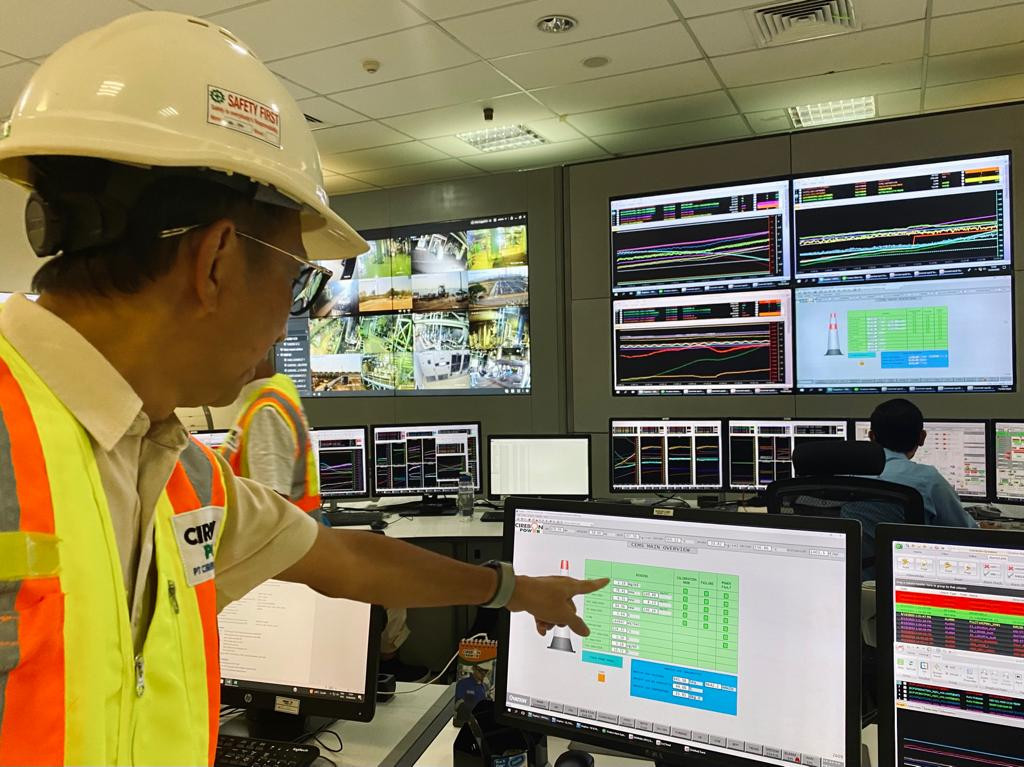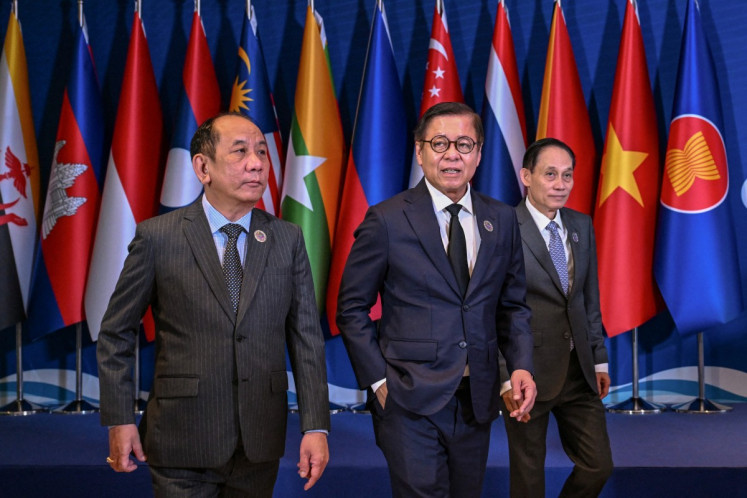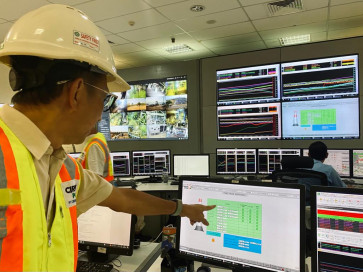Popular Reads
Top Results
Can't find what you're looking for?
View all search resultsPopular Reads
Top Results
Can't find what you're looking for?
View all search resultsAnalysis: RI seeks to kickstart coal-fired power plant retirement ahead of COP 28
Change text size
Gift Premium Articles
to Anyone
 PT Cirebon Electric Power vice president Joseph Pangalila shows live data recorded by the Continuous Emission Monitoring System (CEMS) from its coal plants from its headquarters in Cirebon, West Java, on September 15, 2023. The data can be monitored by the Environment and Forestry Ministry in real time. (The Jakarta Post/Ruth Dea Juwita)
PT Cirebon Electric Power vice president Joseph Pangalila shows live data recorded by the Continuous Emission Monitoring System (CEMS) from its coal plants from its headquarters in Cirebon, West Java, on September 15, 2023. The data can be monitored by the Environment and Forestry Ministry in real time. (The Jakarta Post/Ruth Dea Juwita)
T
he Indonesian government is planning to kickstart the early retirement of its coal-fired power plants (CFPP) ahead of the upcoming 2023 UN Climate Change Conference (UNFCCC COP 28), amid the slow disbursement progress of promised foreign funding. Captive CFPPs for metal processing is said to be the obstacle to the implementation of the Just Energy Transition Partnership (JETP) worth US$20 billion.
Energy and Mineral Resources (ESDM) Minister Dadan Kusdiana said that President Joko “Jokowi” Widodo had set the deadline for Indonesia to declare that the country has started the process for early retirement of its CFPPs to when Conference of Parties (COP 28) is held from Nov. 30 to Dec. 12, 2023 in Dubai, United Arab Emirates. Dadan added that his ministry aims to do at least one commercial transaction of a CFPP in 2023 as part of that mandate and revealed that it is also finalizing a roadmap for early retirement of CFPPs as a reference for both domestic and foreign funding.
Early retirement of CFPPs is part of Indonesia’s goal to cut on-grid power sector carbon emissions to 250 million tons in 2030 and raise its renewable energy generation share to 44 percent as required by JETP, according to its comprehensive investment and policy plan (CIPP) made public on Nov. 1. But the CIPP does not account for captive CFPPs, which have a combined 13.74 gigawatt (GW) of capacity and another 20.48 GW planned due to metal processing sector expansion, according to a report commissioned by the Asian Development Bank (ADB).
Indonesia had initially agreed to cap and peak its power sector's carbon emissions at 290 million tons by 2030 as part of JETP. But the government said that at the time, it had not understood the scope of power capacity outside the state utility's grid, which are in the hands of off-grid metal processors. That led to captive CFPPs’ exclusion from Indonesia’s CIPP for the JETP. Indonesia also seeks to shut down 1.7 GW of CFPP capacity through financing from the Climate Investment Funds and the ADB.
The International Partners Group (IPG), which consists of countries committed to provide half of the US$20 billion JETP funding while the other half provided by Glasgow Financial Alliance for Net Zero (GFANZ), had previously raised their concern on the planned expansions of captive CFPPs for smelters.
According to Senik Centre Asia researcher Andri Prasetiyo, parties who had pledged to disburse JETP funding to Indonesia could back out due to the issue of captive CFPPs. Furthermore, he added that the smelters’ output will find it hard to compete in the global market later on due to their production being powered by CFPPs.
Considering the problems that could threaten IPG’s and the GFANZ’s commitment to JETP funding, experts say the issuance of Finance Ministry Regulation No. 103/2023 on Oct. 13 could assure them towards making good of their pledge. The regulation stipulates that the state budget and “other legitimate sources” can be allocated to end CFPPs’ operations and electricity purchase agreements (PJBL) earlier, as well as to develop renewable energy power generation to replace the retired CFPPs.


















